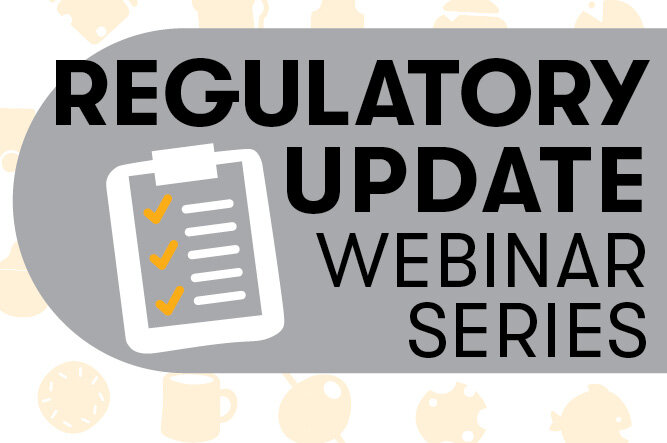Last week, attorney Jeni Lamb Rogers discussed the Foreign Supplier Verification Program, commonly called the FSVP. Non-compliance with the program has become one of the top violations cited by the FDA against food companies, she said. Rogers is the supply chain associate general counsel at Branded and Colorado State committee member at the USDA Farm Service Agency. She has extensive experience working in the world of food regulation and safety.
Rogers explained the ins and outs of the FSVP during a Regulatory Update webinar called “Foreign Supplier Verification Programs - Compliance Spotlight,” during which she detailed how one can get FSVP compliance education, which businesses require one, how one is drafted, how to prepare for an inspection, and other requirements that go into the program.
The FSVP is part of the seven key regulations from the Food Safety and Modernization Act with a clear goal to shift food safety approaches from reactive to preventative. The program itself places responsibility on the importers of food products to verify that their foreign suppliers meet the same level of safety standards as domestic manufacturers.
The importance of understanding the FSVP process was highlighted in the statistic that 72.9 percent of FDA violations in 2021 were related to the FSVP, according to data from the FDA; 52.7 percent of which resulted from companies who failed to develop an FSVP when they were prompted to.
“FSVPs have become an increasing area of focus for the FDA, and many smaller businesses continue not to be aware of the requirements to have an FSVP or are unclear as to whether they need one or not and how to go about taking the first steps to develop an FSVP,” said Rogers.
Not all imported goods require FSVP compliance, however. Although most foods manufactured, grown, or raised overseas and then imported to the US require verification, there are a few exceptions, like USDA-regulated food which are omitted from the process. In addition, there are modified requirements for very small importers, imports from an already qualified facility, and imports of finished goods from countries with an FDA-recognized equivalent food safety system, like Australia, New Zealand, and Canada.
Generally, smaller-scale specialty food businesses who require an FSVP should have someone on their team go through the FSCPA FSVP training, a two-day process that details every step and procedure needed to comply with the program, said Rogers.
FSVP qualified individuals must:
• Conduct hazard analysis on ingredient items
• Evaluate the foreign supplier performance and risk posed by the food
• Approve foreign suppliers
• Perform foreign supplier verification activities, like conducting onsite audits, sampling and testing, reviewing records, etc.
• Make corrective actions as needed
• Maintain records of all FSVP processes
Specific steps, like hazard analyses and auditing, require additional oversight by contracted food safety or advanced certification professionals, rather than be carried out by the trained individual working for the specialty food brand.
To learn more about the FSVP process and requirements, and information on how to get started, watch the webinar on demand in SFA’s Learning Center.
Related: New FDA Food Import Procedure; FDA Refines Framework for Evaluating Food Allergens

